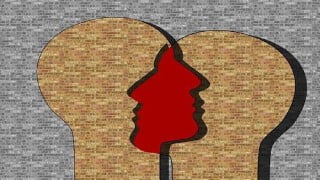Cognitive Behavioural Therapy (CBT) Associate Life Coach
Learn the versatile and effective Cognitive Behavioural Therapy (CBT) coaching approach with this course. Gain a formal certification and apply evidence-based techniques to help clients. Suitable for therapists, coaches, and individuals seeking personal growth and well-being. Immediate actionable resources included.
What you’ll learn
- Animation Representation Training™ designed specifically for visual and auditory learners
- 24 Downloadable PDF exercises to use with clients
- *Prior to enrolling please watch the free lectures to make certain Animation Representation Training™ matches your learning style*
- Immediately Actionable Resources including guides, handouts and workbooks
- Apply evidence-based coaching techniques with their own clients in a professional practice
- Practice as a Cognitive Behavioural Associate Coach
- Use CBT Coaching as a self healing model
Cognitive Behavioural Therapy (CBT) Associate Life Coach
CBT: Cognitive Behavioural Therapy Life Coaching Associate Coach Course Completion Certificate in Cognitive Behavioural Coaching. Practice as a Cognitive Behavioural Associate Coach. Apply evidence-based coaching techniques with their own clients in a professional practice. Use CBT Coaching as a self healing model.
Course includes 24 Downloadable PDF exercises to use with clients/self. Immediately Actionable Resources including guides, handouts and workbooks.
CBT (Cognitive Behavioural Therapy) really is an amazing versatile model that can be applied to an array of problematic symptoms, producing positive results for you, right now. Don’t suffer a moment longer, take this course and discover the magic of CBT (Cognitive Behavioural Therapy). As with all my courses, I’m on hand to provide support, 7 days a week.
We are the World’s number one provider of Self Development and Arts Therapy Courses, with more than 180,000 students in 192 countries.
CBT Coaching
Cognitive Behavioural Coaching is an evidence-based life-coaching approach that is designed to benefit everyone. Whether you are using the model as a self help application, therapist, mentor, or coach wishing to expand and build on your existing skill sets, this course is for you.
Cognitive Behavioural Coaching is an evidence-based counterpart of Cognitive Behavioural Therapy – begun by Dr. Aaron Beck in the 1960’s, where short-term, goal-oriented therapy is used to change patterns of thinking and behaviour.
CBC is effective for a range of coaching scenarios, as well as for personal development and overall well-being.
These include:
Development of happiness
Personal growth, life goal issues, performance at work issues
Realizing your true potential
Decreasing depressive symptoms
Various forms of anxiety, especially social anxiety
Phobias
Panic attacks
Problems related to impulse control
Problems related to emotional control
Anger management
Stress management
Child behavioral issues
Family relationship issues
Issues specific to couples
Course content includes:
CBT associate coach introduction: This evidence-based approach has revolutionised the coaching industry, and we trust it will do the same for your practice (and life).
Student activity: In this lecture you’ll take the Life-Satisfaction Assessment and learn how to use it with your clients.
Student activity: By the end of this lecture you will be able to apply, and teach, the behavioural “As If” technique. This lecture incorporates a case-study of a middle-aged professional woman “Maureen”
Ethical guidelines for CBT associate coaching.
What is CBT coaching? CBC is derived from CBT and the work of Dr Beck, Dr Burns, as well as from the evidence-based coaching genre. In this lecture you’ll gain understanding into the world of a cognitive behavioural coach.
Associate coaching disclaimer.
CBT and CBC: Develop a greater awareness of the differences between evidence-based coaching and; therapy, counselling, psychotherapy.
Case study for CBT coaching: Coaching case study 45 year old male “Jason”
Play the script till the end: By the end of this lecture you will be able to help clients overcome the fears and obstacles on their way to achieving their goals.
Modifying rules and assumptions: By the end of this lecture you’ll be able to successfully challenge the unhelpful rules and assumptions your clients may exhibit.
Case study -Session one: By the end of this lecture you will be able to clearly articulate and leverage the “Stages of Change” when working with a client. Case study 45 year old male “Jason” continued.
Three negative What If’s.
Case study – Session two.
Before I Blame Myself and Feel Guilty.
Stages of change.
Behavioural experiment.
Case study – Session three.
Case study – Session four.
Case study – Session five.
A fundamental concept of CBT and CBC: By the end of this lecture you will understand one of the fundamental concepts of cognitive behavioural coaching.
Three step coaching structure: Gain proficiency in a three step cognitive distortion coaching structure.
Seven Types of Thinking Errors.
Negative automatic thoughts: By the end of this lecture you will be able to recognise your clients NAT’s (and your own).
Keeping Track of Your Thoughts – NAT Journal.
Coaching as a Co-Created Collaborative Relationship: Discover foundational coaching concepts that are at the core of any coaching practice.
Appreciative Inquiry: By the end of this lecture you will be prepared to use the evidence-based approach of appreciative inquiry (worksheet provided).
Active Listening: By the end of this lecture you will ready to engage with clients from an active-listening context (worksheet provided).
Rapport building:
Discover the science of rapport within a coaching context.
Who this course is for:
- Anyone seeking a formal Cognitive Behavioural Associate Coach Certification
- Those of you who wish to use the evidence-based techniques of the CBC Model as a self help application
- Practitioners, therapists, counsellors and coaches who wish to use Cognitive Behavioural Coaching with their own clients in a professional practice
- Individuals looking to achieve a greater sense of life-satisfaction, and clarity of thinking
User Reviews
Be the first to review “Cognitive Behavioural Therapy (CBT) Associate Life Coach”
You must be logged in to post a review.







There are no reviews yet.